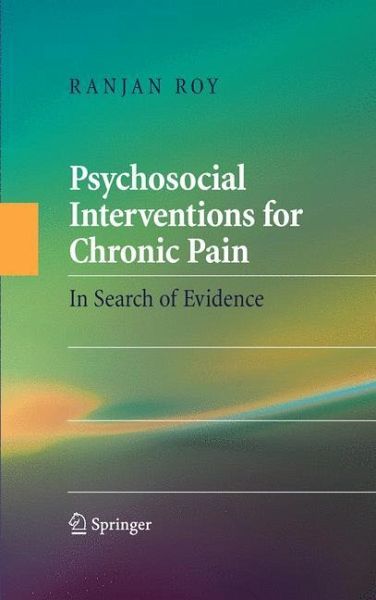
Psychosocial Interventions for Chronic Pain
In Search of Evidence
Versandkostenfrei!
Versandfertig in 6-10 Tagen
129,99 €
inkl. MwSt.
Weitere Ausgaben:

PAYBACK Punkte
65 °P sammeln!
Recently, there has been a significant and healthy shift to establish the effectiveness of clinical practice, widely referred to as "evidence-based medicine." This book fills a major gap in the practice literature for healthcare professionals engaged in providing psychosocial care for their patients suffering from chronic pain or illness. Oxford University, a leader in evidence-based medicine, now has a master's program in evidence-based social work, the only one of its kind. Much of the practice of medicine is evidence based; however, much of the psychosocial care provided to patients is not....
Recently, there has been a significant and healthy shift to establish the effectiveness of clinical practice, widely referred to as "evidence-based medicine." This book fills a major gap in the practice literature for healthcare professionals engaged in providing psychosocial care for their patients suffering from chronic pain or illness. Oxford University, a leader in evidence-based medicine, now has a master's program in evidence-based social work, the only one of its kind. Much of the practice of medicine is evidence based; however, much of the psychosocial care provided to patients is not. This is not due to the absence of such evidence; rather, practice has traditionally relied on clinical evidence, common sense, and practitioner "wisdom." However, given the demand for results from governments, from insurance companies, and, most importantly, from patients, psychosocial care must move in the direction of evidence-based practice, for which a great deal of research is available.
This book will (1) provide empirically derived support and understanding of psychosocial problems encountered by patients and (2) explore the efficacy of the interventions available for patient care. Chapter 1 will take a historical view of the development of evidence-based practice in medicine and psychology. Chapter 2 will examine the concept of empirically supported evidence, ie, the extent to which the impact of psychosocial problems on health has been measured. The remaining eight chapters will explore a range of psychosocial issues through case illustration and examine both the problems and their management from an evidence-based approach. This book is a departure from reports on evidence-based practice to the extent that the empirical bases of the problems reported, and not just their treatment, are subjected to scrutiny.
This book will (1) provide empirically derived support and understanding of psychosocial problems encountered by patients and (2) explore the efficacy of the interventions available for patient care. Chapter 1 will take a historical view of the development of evidence-based practice in medicine and psychology. Chapter 2 will examine the concept of empirically supported evidence, ie, the extent to which the impact of psychosocial problems on health has been measured. The remaining eight chapters will explore a range of psychosocial issues through case illustration and examine both the problems and their management from an evidence-based approach. This book is a departure from reports on evidence-based practice to the extent that the empirical bases of the problems reported, and not just their treatment, are subjected to scrutiny.














